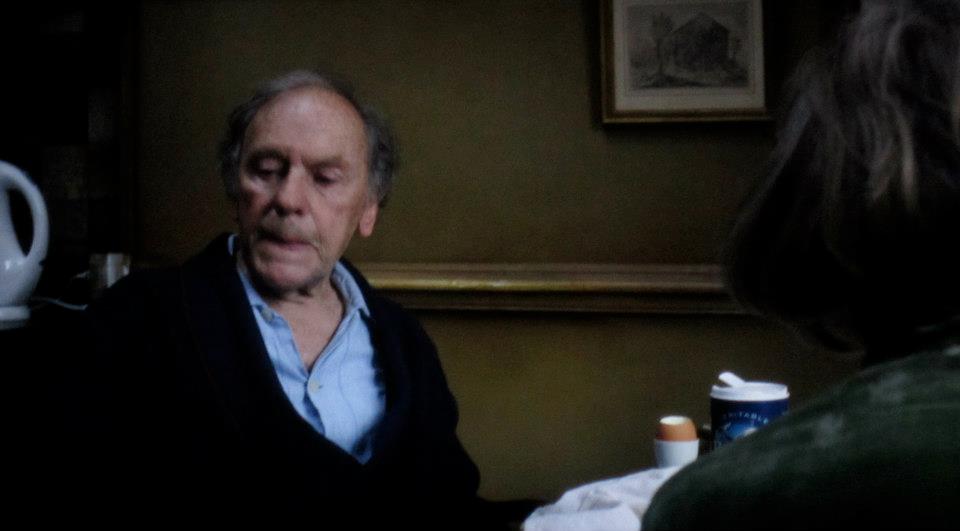The critic Stanley Kauffmann once listed what he saw as the key differences between theatre and film. His most interesting and yet least developed point was that what he calls “the effects of death” are at their most powerful on film. He meant that, since the screen actor’s work, in all of its lifelike detail, survives the life of the artist, the movies confront us with “the inevitable” in a way that the theater doesn’t. That fully nuanced person that we are seeing in an old movie – be it Bogart or Garbo or Chaplin – is no more, Kauffmann’s line of thought goes, yet was, just as we are now. So the persons of the cinema, who in some respects defy death, are on a deeper level a reminder of its inevitability.
I thought of this while watching Jean-Louis Trintignant and Emanuelle Riva in Michael Haneke’s AMOUR, and that Kauffmann had missed the way in which film doesn’t just own the effects of death but those related ones of aging. We watch our film stars grow old, if they work through their lives. Yet we can always see them young again, filled, ironically, with a future that we have seen but they have not.
To see Trintignant at 82 was for me especially poignant; my education in the post-war European cinema was to an amazing extent in the films in which he appeared. He was – is – one of those types that bring to mind the paradoxical figure: attractive but not pretty, ordinary yet arresting, intellectual albeit benighted, talkative however taciturn. He is now officially “old”, yet young as ever in the attitude of wonder that he brings to AMOUR.
But still there is that effect of death and aging implicit in the cinema, and so in watching him play an old man who sees his wife take a turn at the breakfast table one morning and then must nurse her decline, one wonders how long he, not the character but Trintignant himself, has. And not just him, but Rivas too, and, less obviously, Isabelle Huppert, who plays the couple’s daughter, and whose younger self is cunningly called to mind, and then of course we think about each other, which is Haneke’s whole point, to poke us with that blade and twist it, beautifully.
The imagery is austere, and bottomless, and musical in its soundlessness, and the closing montage is the closest thing to Chekhov I have seen on film. The early Wittgenstein said that when we die the universe ceases, but what Haneke’s frames add to that is that as we age the universe is reordered, and the pages fall here, there, and where they may. So shall it be for the Trintignant of Vadim and Rohmer and Bertolucci and Corbucci and Lelouch and Kieslowski, and the Huppert of then and now, and for you and I watching them, or writing or reading this.
Check listings for viewing options.
